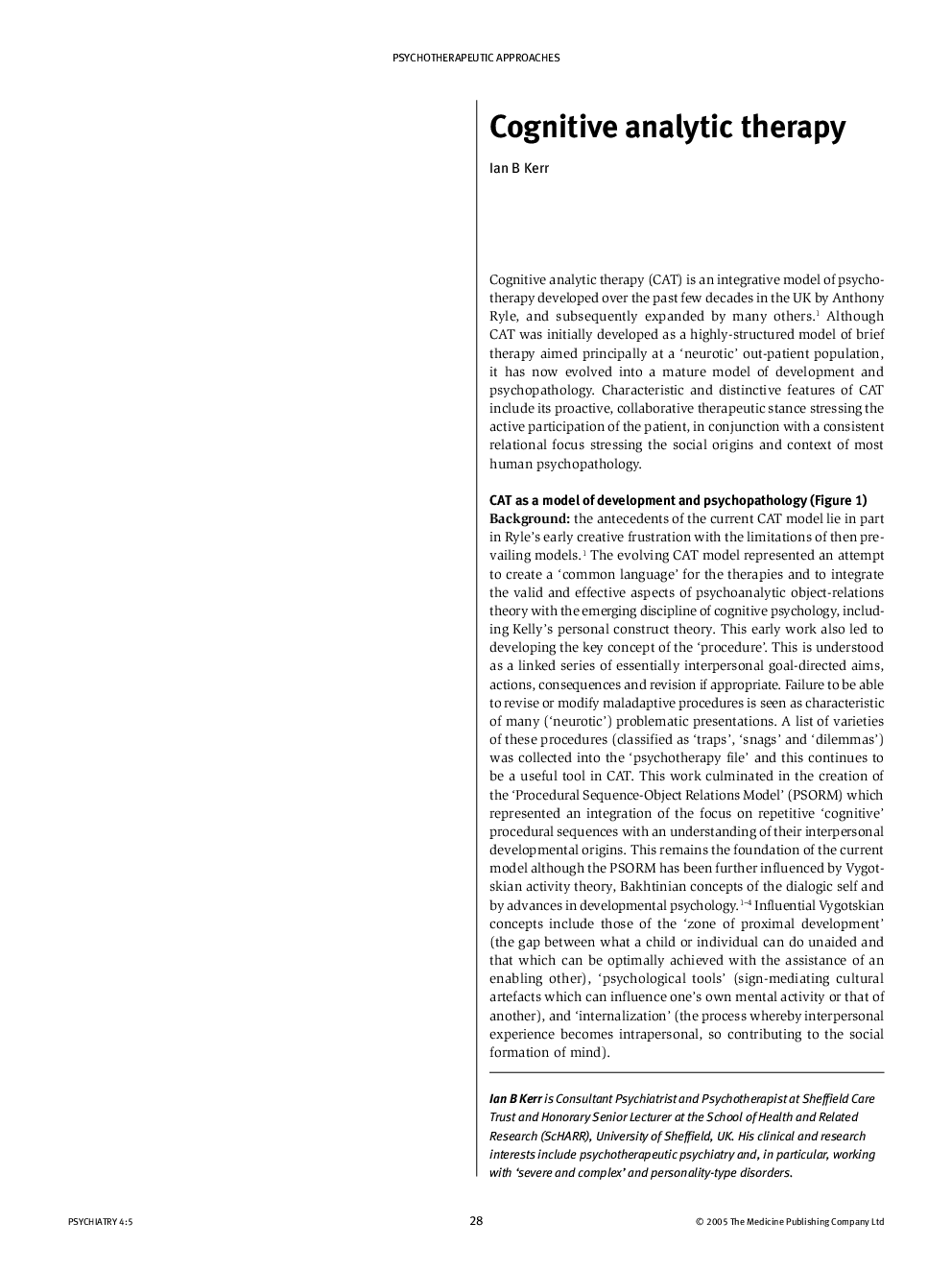| Article ID | Journal | Published Year | Pages | File Type |
|---|---|---|---|---|
| 9381761 | Psychiatry | 2005 | 6 Pages |
Abstract
Cognitive analytic therapy (CAT) is an integrative model of psychotherapy developed over the past few decades in the UK by Anthony Ryle, and subsequently expanded by many others. Although CAT was initially developed as a highly-structured model of brief therapy aimed principally at a 'neurotic' out-patient population, it has now evolved into a mature model of development and psychopathology. Characteristic and distinctive features of CAT include its proactive, collaborative therapeutic stance stressing the active participation of the patient, in conjunction with a consistent relational focus stressing the social origins and context of most human psychopathology. As a relatively new model, CAT continues to need research to evaluate its comparative validity and effectiveness although it conforms entirely to what is known of the characteristics of effective therapies. Several controlled trials are underway in various areas, notably that of borderline personality disorder, and these will augment its existing evidence base.
Related Topics
Health Sciences
Medicine and Dentistry
Psychiatry and Mental Health
Authors
Ian B Kerr,
